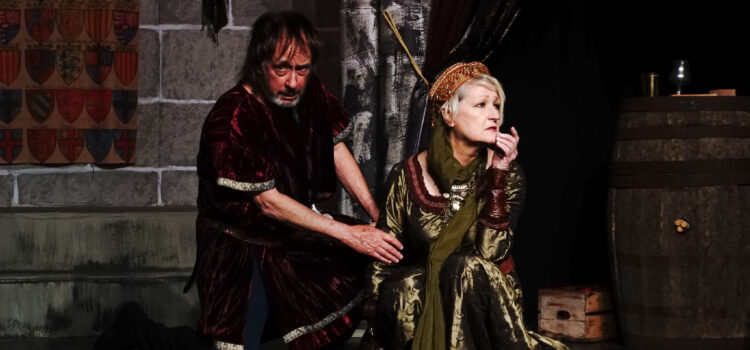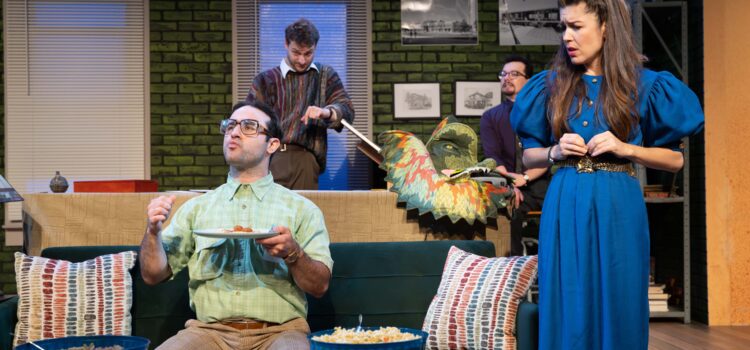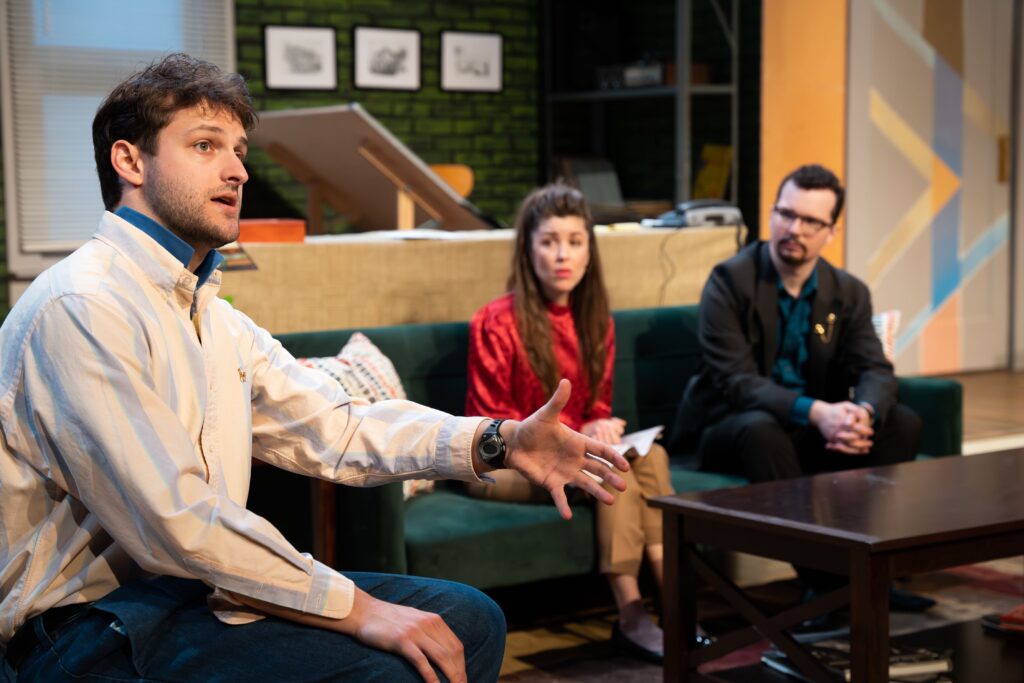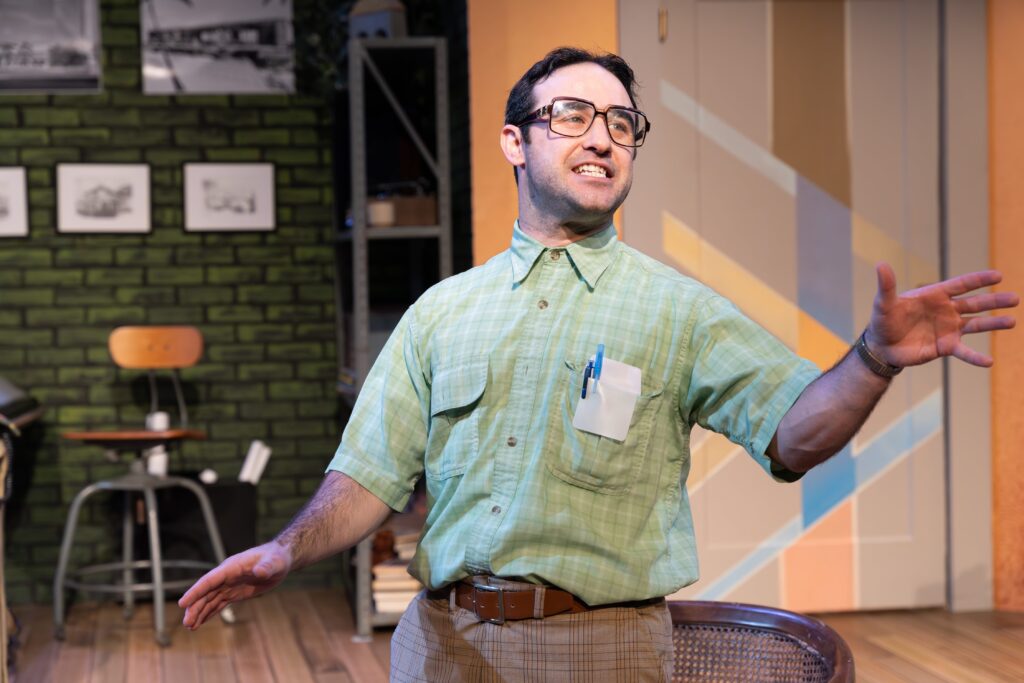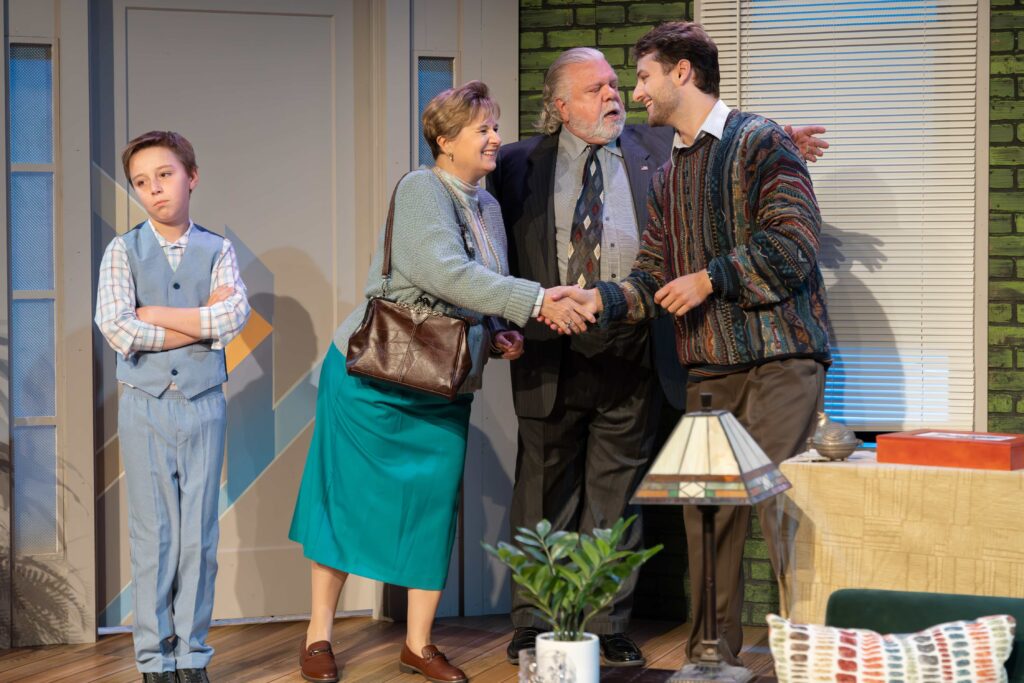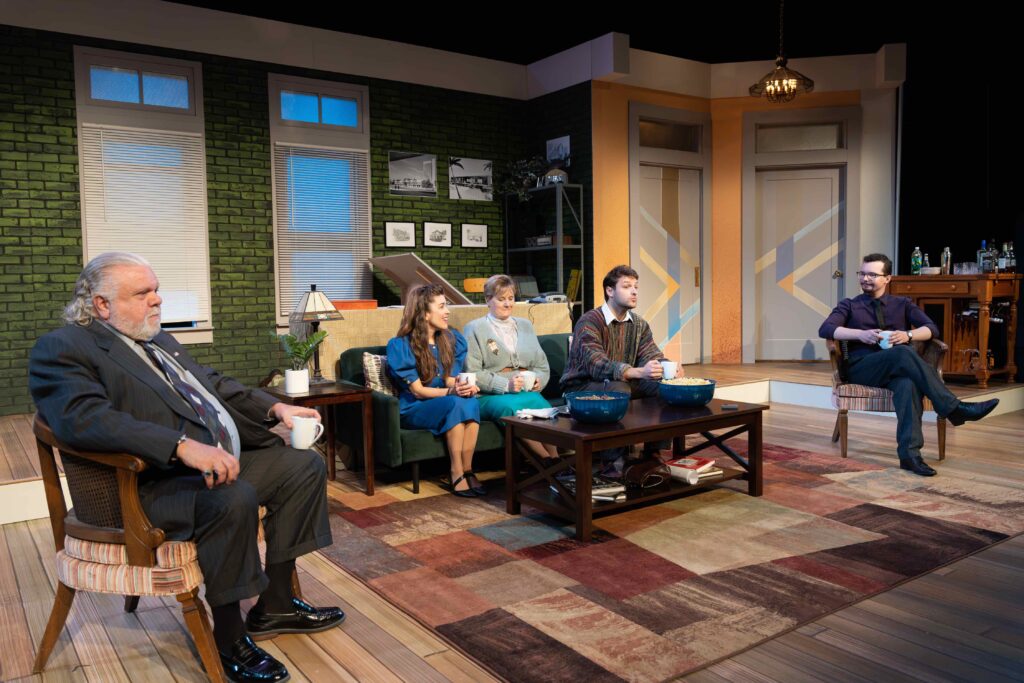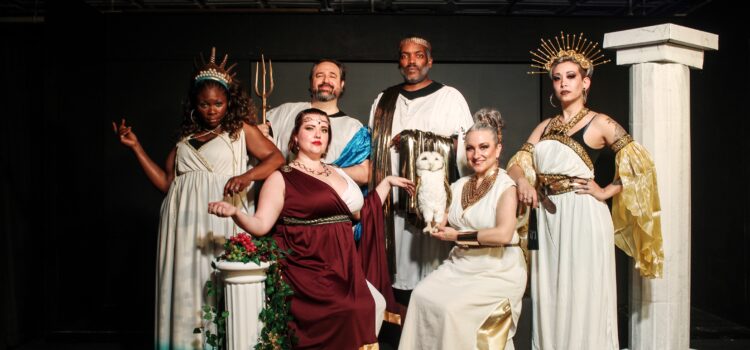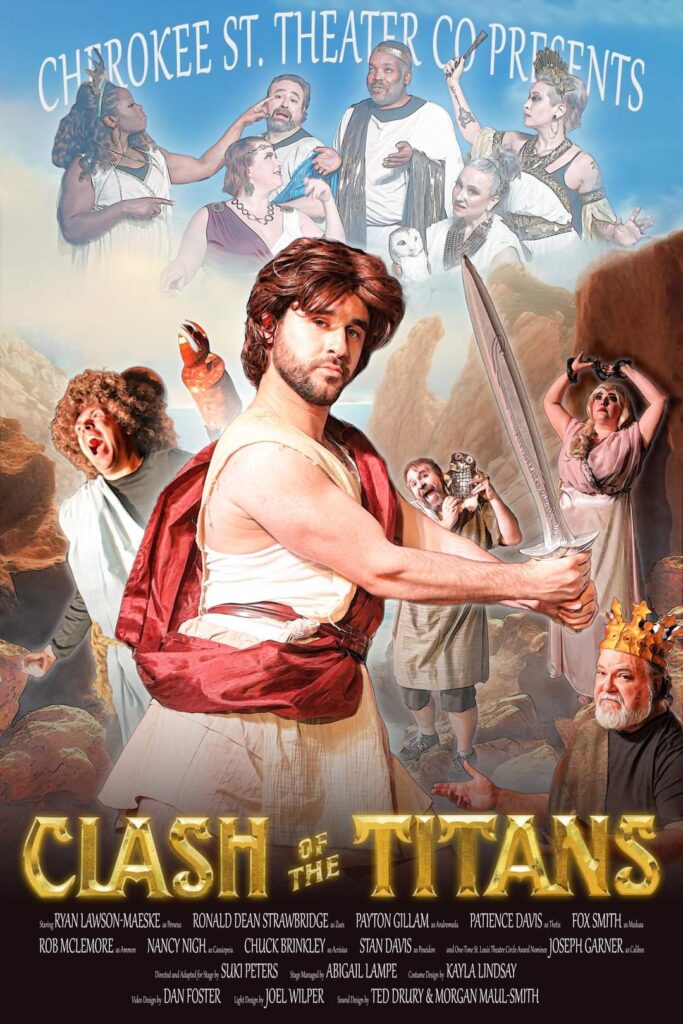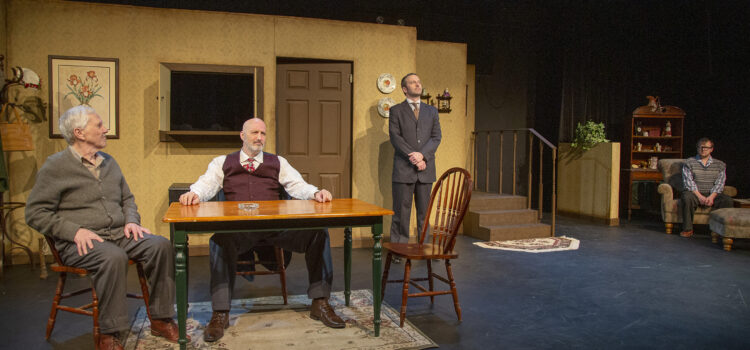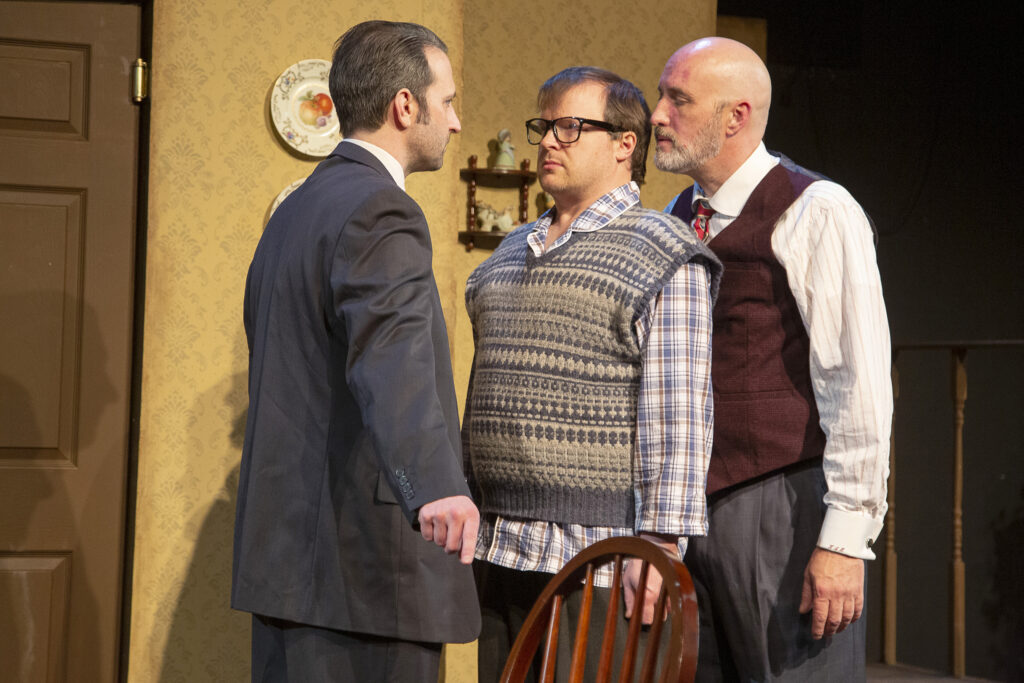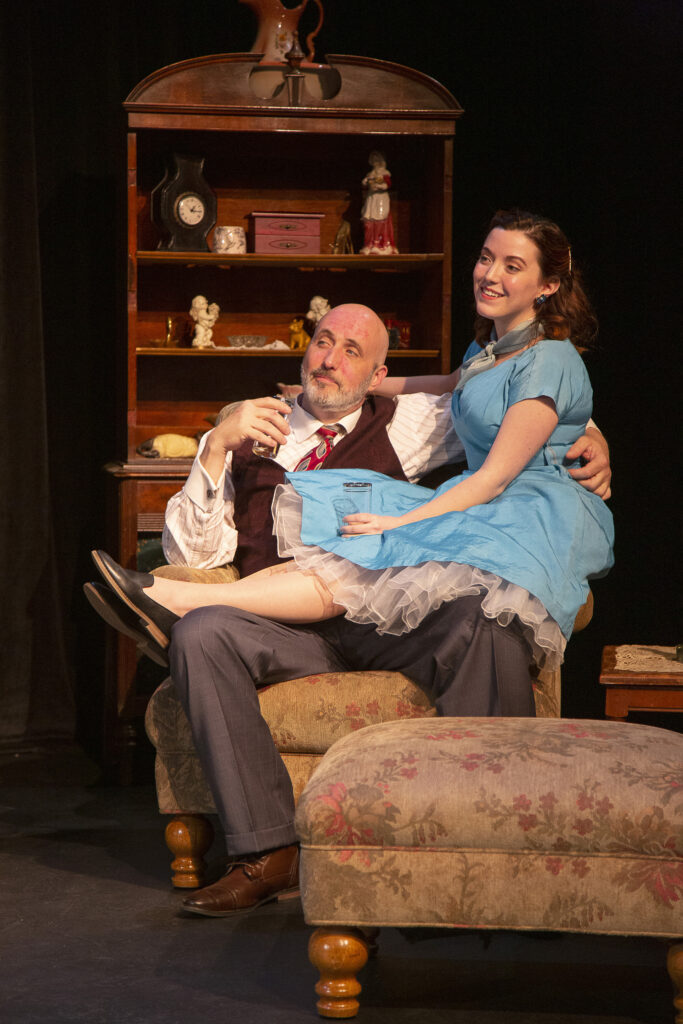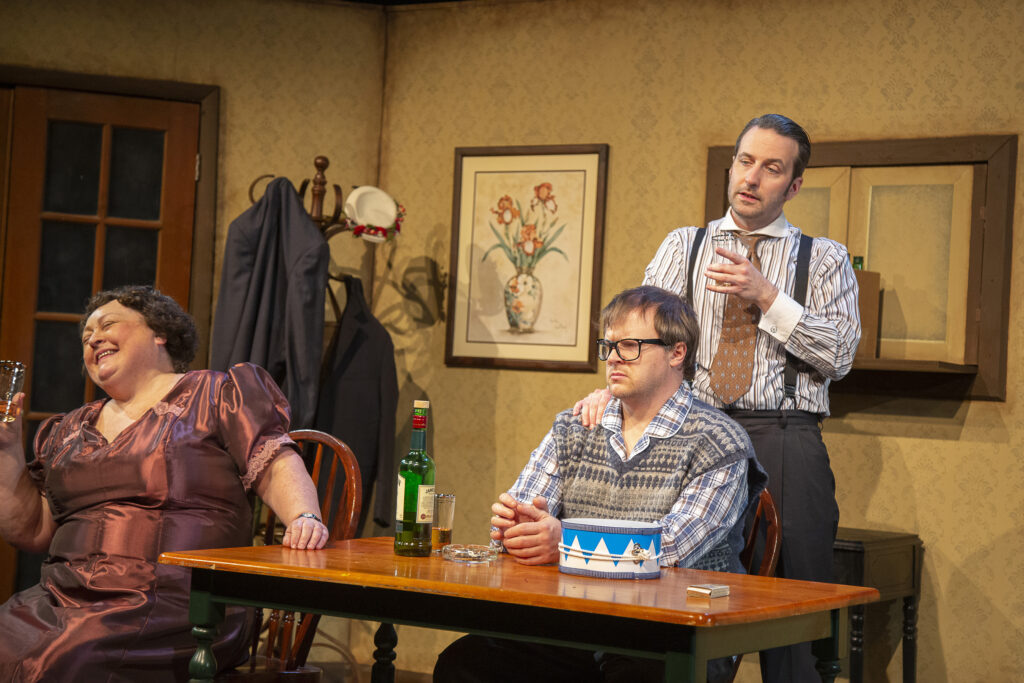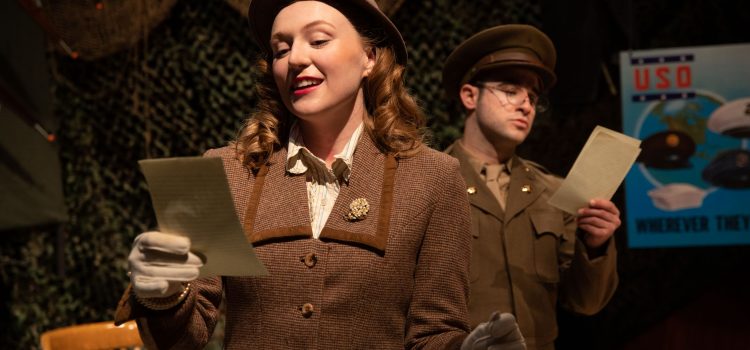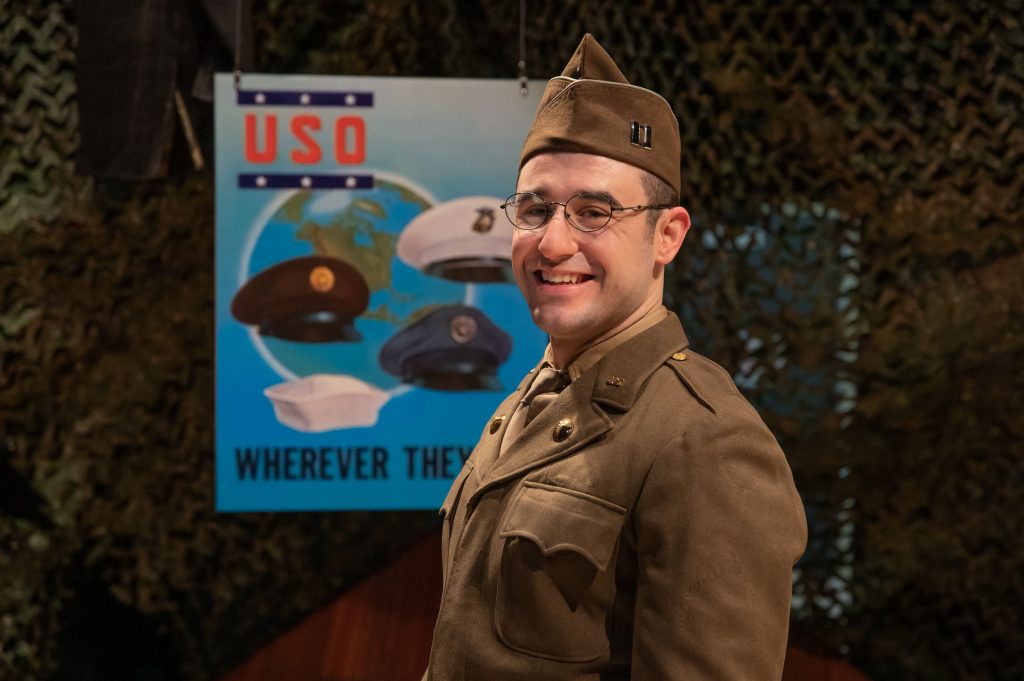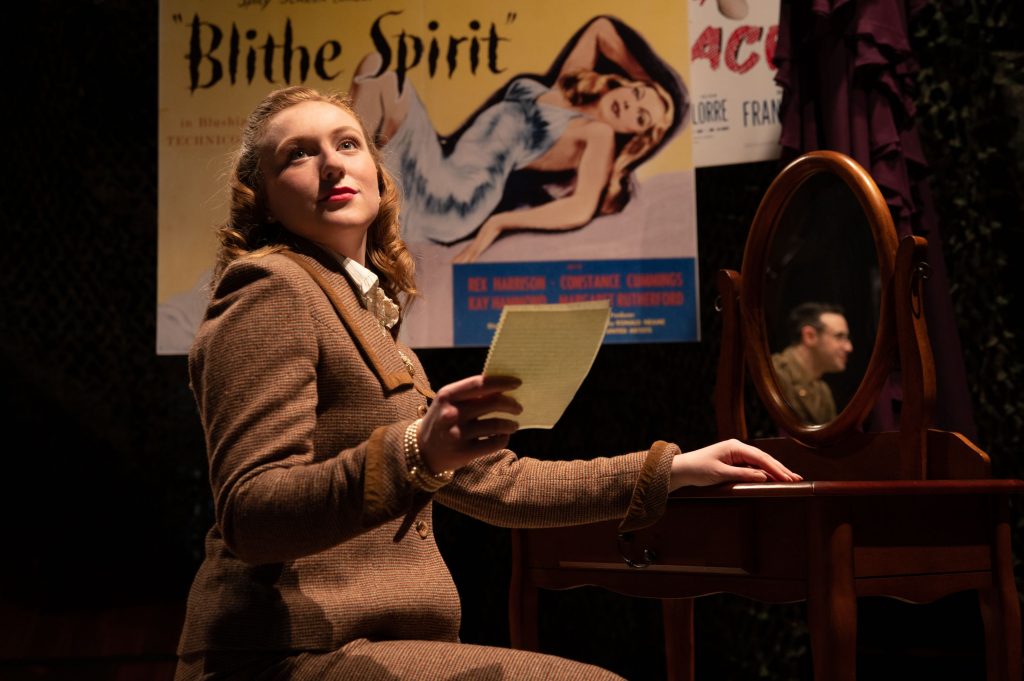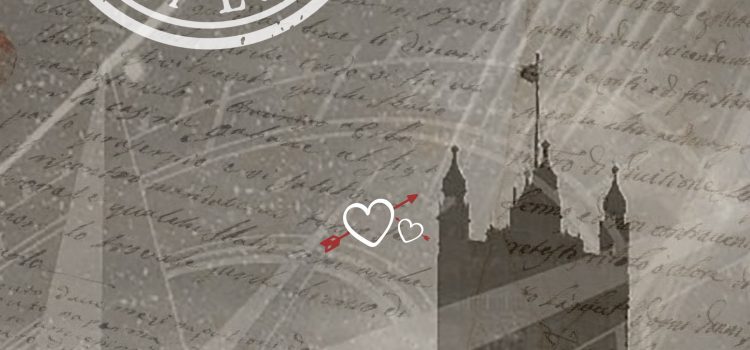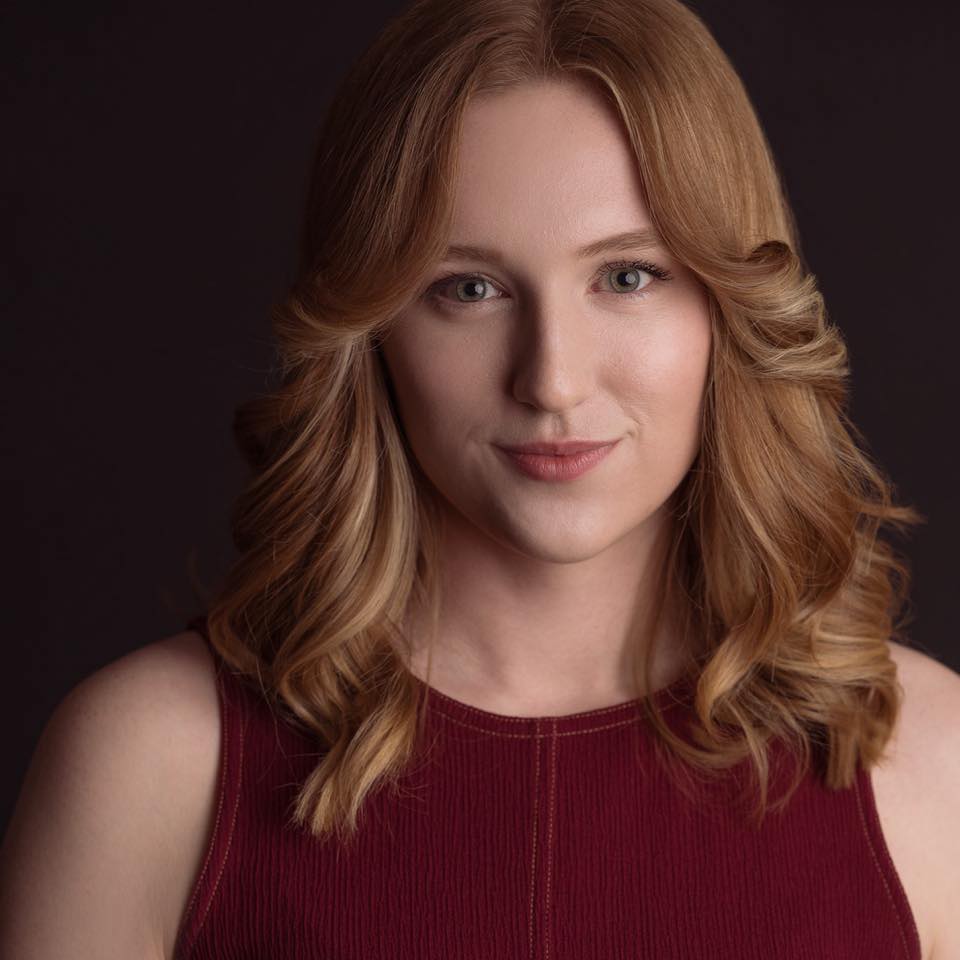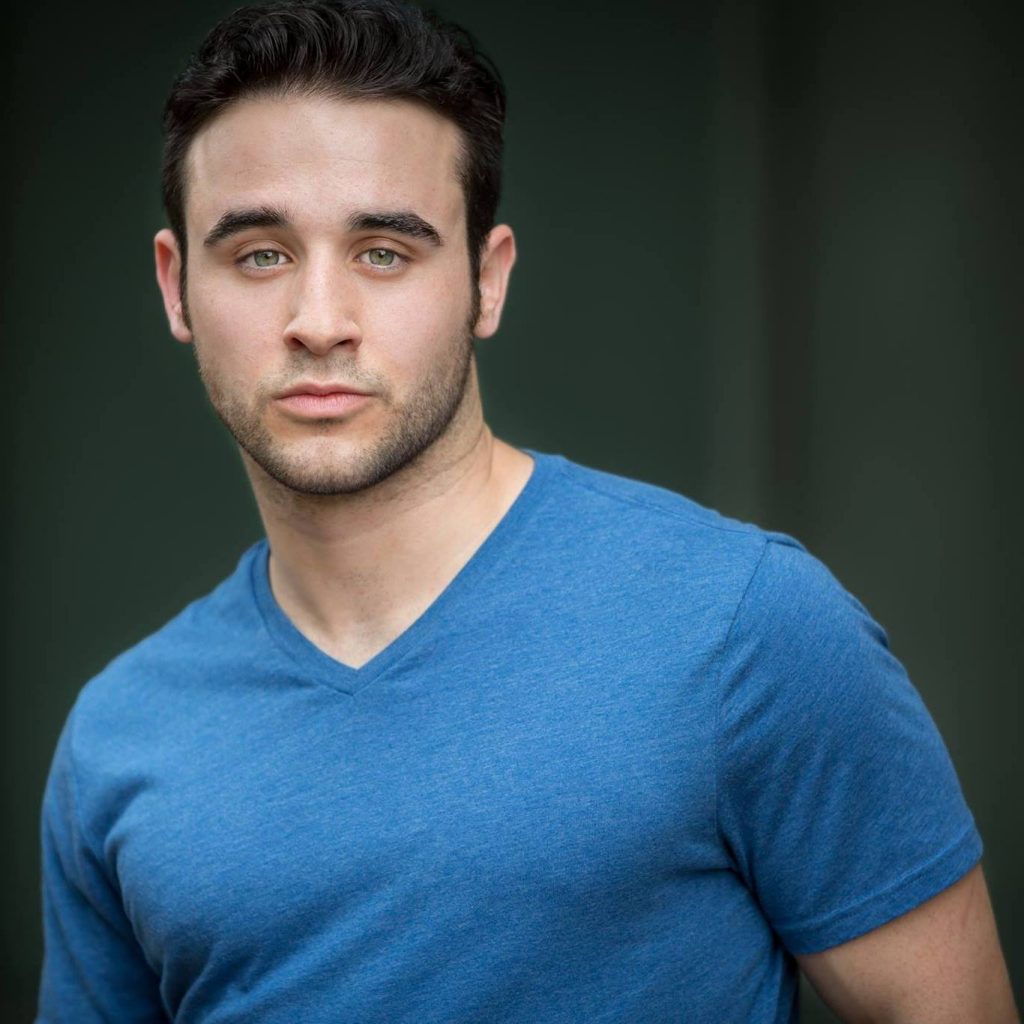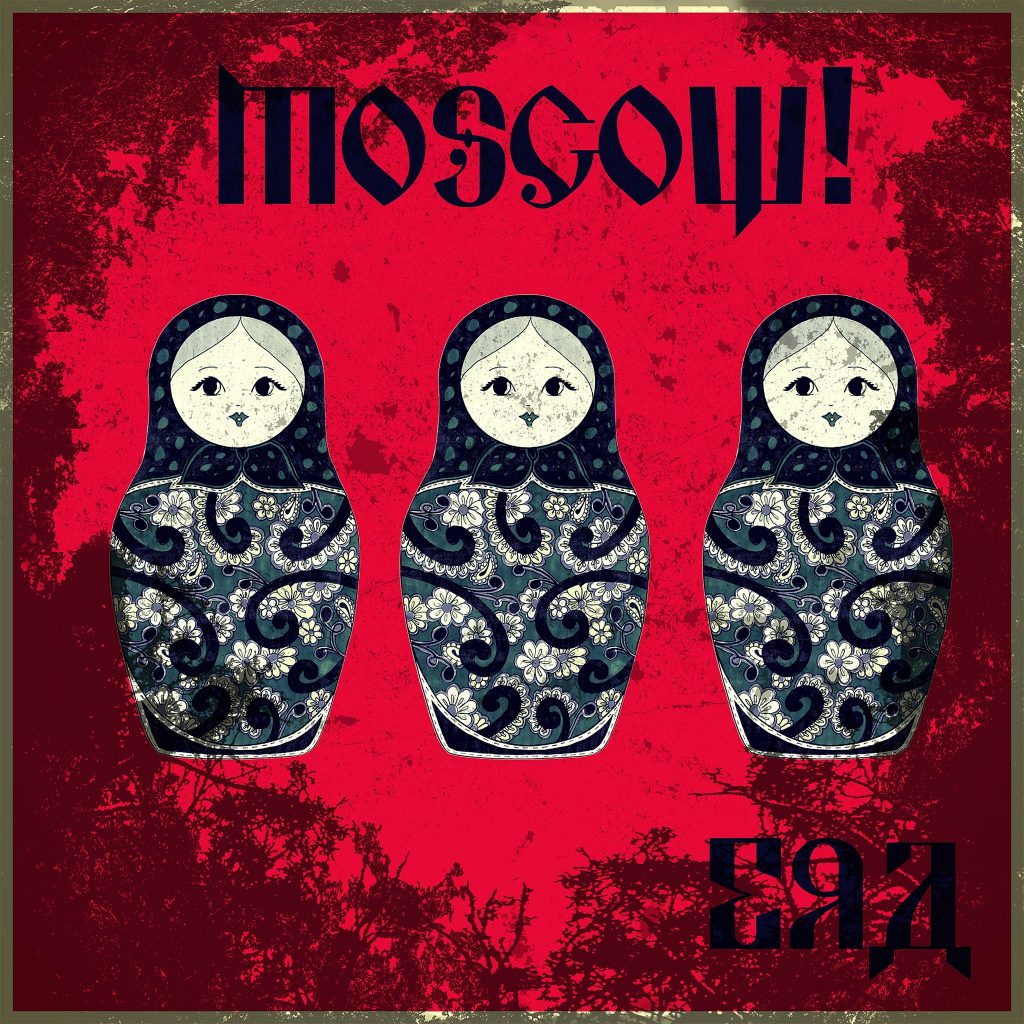By Lynn Venhaus
The rapacious 12th Century Plantagenet Family behaves as badly as the modern-day Roys of Manhattan and The Duttons of Montana, a rogues’ gallery of royal connivers in “The Lion in Winter.”
That’s one of the many reasons why The Midnight Company’s bracing production is fun – and riveting – to watch because sparks fly, and flames are fanned in a master class exercise in acting.
Director Tom Kopp has lit a fuse under his finely tuned ensemble so that they burn bright, crackling with big birthright energy while delivering virtuosic performances: Joe Hanrahan, Lavonne Byers, Joel Moses, John Wolbers, Ryan Lawson-Maeske, Michael Pierce and Shannon Campbell.
As the formidable ensemble tackles each aristocratic character like a predator setting a trap for his prey, they often strike a playful, comedic tone but mainly heighten the drama’s intensity because their massive ambitions collide in a winner-takes-all battle. The prize: inheriting the crown of King Henry II of England.
Multi-hyphenate award winner Joe Hanrahan plays mega-manipulator Henry with a smirk and a gleeful vitality, emphasizing his skills at being a disrupter and poster boy for “It’s Good to Be King.” He met his match with his older ‘bride,’ Eleanor, the richest and shrewdest woman in the world who bore him four sons, but they sure don’t care much for them, except as pawns in their epic face-offs.
James Goldman’s 1966 play is set at a contentious Christmastime in 1183 in a castle in Chinon, France, on land still owned by the British ruler. The classic dysfunctional family is hanging festive holly, but they are far from jolly.
That’s to be expected, with the mom – who tried to overthrow the king awhile back — about to return to prison, where she’s been kept by her husband for 10 years, and then dear old domineering dad put the three bad-tempered sons in the dungeon. His firstborn has died. Sounds – and looks like – a holiday in hell.
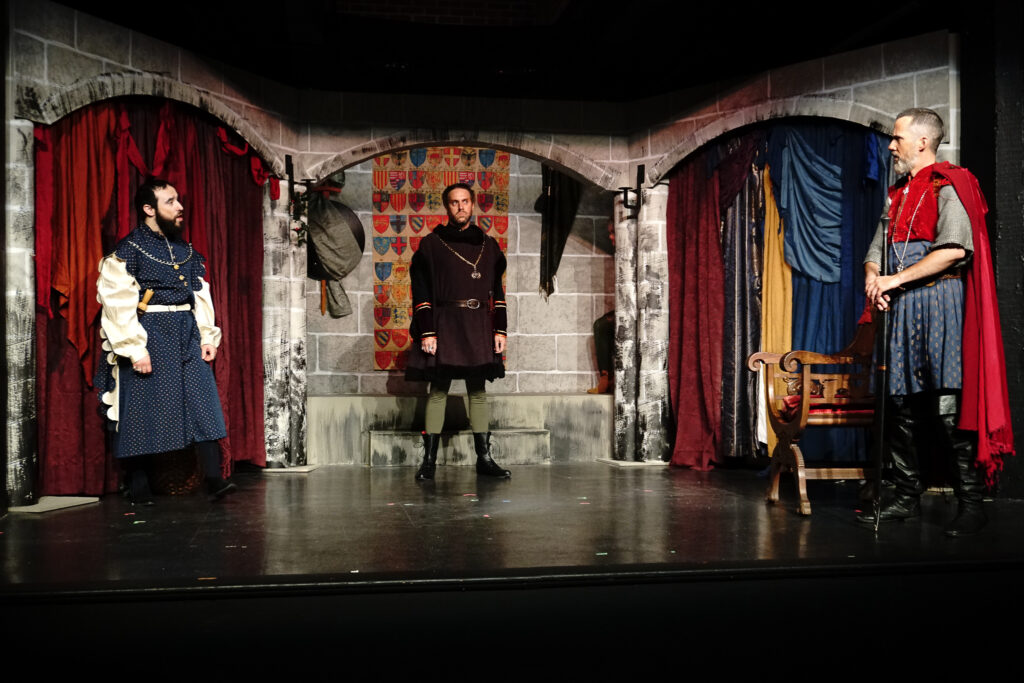
With anger and resentment thick in the air and mulled wine flowing, swords are brandished and emotions erupt as conflicts ensue. You can see the wheels turning in their cunning little heads. Kopp has briskly staged the posturing, maneuvering, embracing, and shouting so that we’re kept off-guard and suspicious.
The group is tangled in one–upmanship, some more obvious than others – but it’s apparent the amount of trust and respect among the actors that allows them to have a field day with the material and each other.
One of the grand dames of St Louis regional theatre, Lavonne Byers ascends to her lofty perch as the crafty and regal queen – and in a savvy display, she doesn’t telegraph what she’s doing until it’s done, so smooth in the takeovers.
The two-time St. Louis Theater Circle winner and frequent nominee devours anyone in her path as the legendary Eleanor of Aquitane, the role that won Katharine Hepburn her third of four Academy Awards in the 1968 movie version.
As the mom-and-pop puppetmasters, Hanrahan and Byers are spirited in doing the Tango Queen as they dance around – and this battling couple actually loves one another. But as to which of their three chips off the old block will take over the kingdom is quite a game of chess.
Richard, the warrior, as in “The Lionhearted,” won’t be denied, but neither will the pre-Renaissance Machiavellian Geoffrey, bitter about being passed over, and they both are out of favor because the youngest, an immature buffoonish John, is daddy’s favorite. (Maybe because they both behave like petulant children.)
The terrific trio of Joel Moses as the steely soldier Richard, John Wolbers as sly schemer Geoffrey, and Ryan Lawson-Maeske as spoiled brat John lock into their characters seamlessly.
I’m not concerned about their characters’ ages – Richard, 26; Geoffrey, 25; and John, 16, and you don’t have to be either – it’s called acting, and they’re very good at creating full-bodied portrayals. When you have actors not usually known for playing villains in amoral roles, it’s delectable. (Also, smart choice to not have English accents).
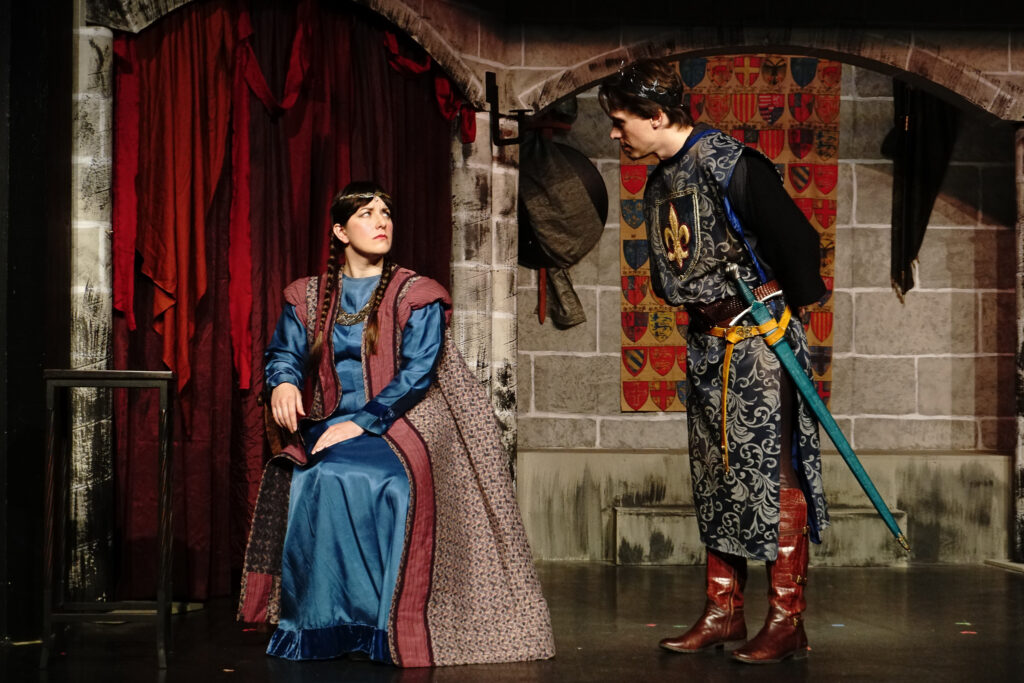
Then complicating things are those testy French folks staying there, unpleasant attitudes flaring up – the young King Philip, 18, who’s been in charge for three years, and his sister, Alais, 23, who besides being a princess is supposed to be engaged to Richard but is Henry’s very young mistress. That’s another soap opera, but she may be the most ruthless of all.
Alais has been in the castle for a long time, pretty much raised by Eleanor. Strange bedfellows indeed. Shannon Campbell and Michael Pierce are strong in those roles, setting themselves apart from those high-maintenance Plantagenets but still crafty. After all, the new king is itching to go to war with England.
The creative team has delivered a vibrant staging, with stage manager Karen Pierce keeping the action from sagging. With a well-appointed set design by Brad Slavik, well-lit by lighting designer Tony Anselmo, and vintage props collected by Miriam Whatley, the look is a pleasant replica of nooks in a drafty castle. Costume designer Liz Henning demonstrates her considerable gifts outfitting the royals in impressive fabrics, textures, embroidery and finery.
A special touch is original music composed by Susan Elaine Kopp that gives it an authentic cultural “welcome to the almost Renaissance” sound.
If you like diving into history, you may enjoy finding out who succeeded Henry. Spoiler alert: the tall fighting man. But that should be its own sequel.
The Midnight Company’s invigorating production makes the past become an absorbing power play by movers and shakers that leaps off dusty pages of an Encyclopedia Brittanica. Long live the kings in a not-to-be-missed show.
The Midnight Company presents “The Lion in Winter” from Oct. 5 to Oct. 21, with performances at 8 p.m. on Thursdays, Fridays and Saturdays, and at 2 p.m. Sundays on Oct. 8 and 15 at the .Zack Theatre,
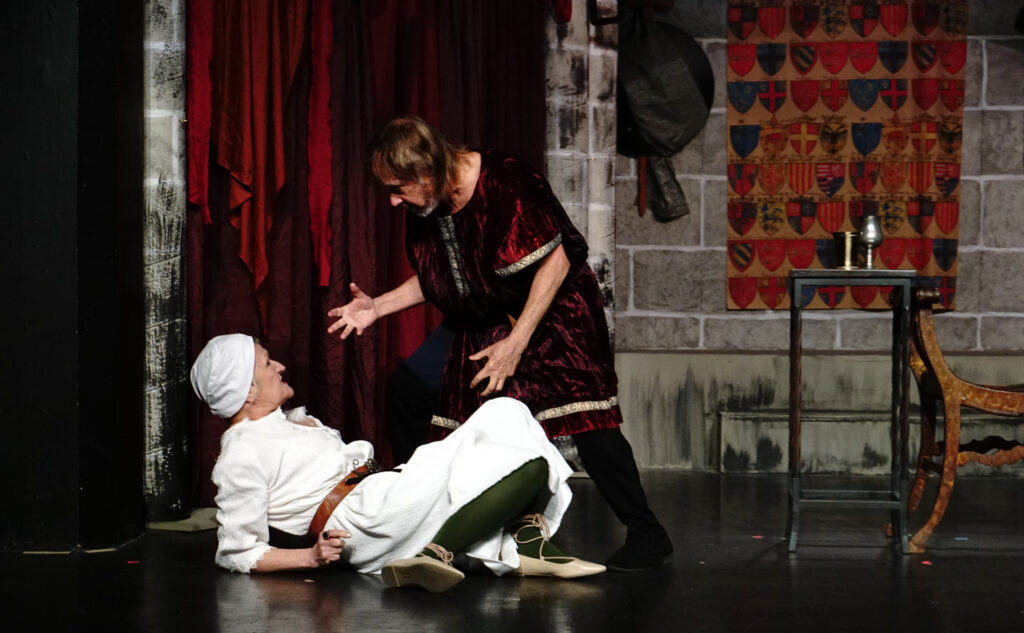

Lynn (Zipfel) Venhaus has had a continuous byline in St. Louis metro region publications since 1978. She writes features and news for Belleville News-Democrat and contributes to St. Louis magazine and other publications.
She is a Rotten Tomatoes-approved film critic, currently reviews films for Webster-Kirkwood Times and KTRS Radio, covers entertainment for PopLifeSTL.com and co-hosts podcast PopLifeSTL.com…Presents.
She is a member of Critics Choice Association, where she serves on the women’s and marketing committees; Alliance of Women Film Journalists; and on the board of the St. Louis Film Critics Association. She is a founding and board member of the St. Louis Theater Circle.
She is retired from teaching journalism/media as an adjunct college instructor.

